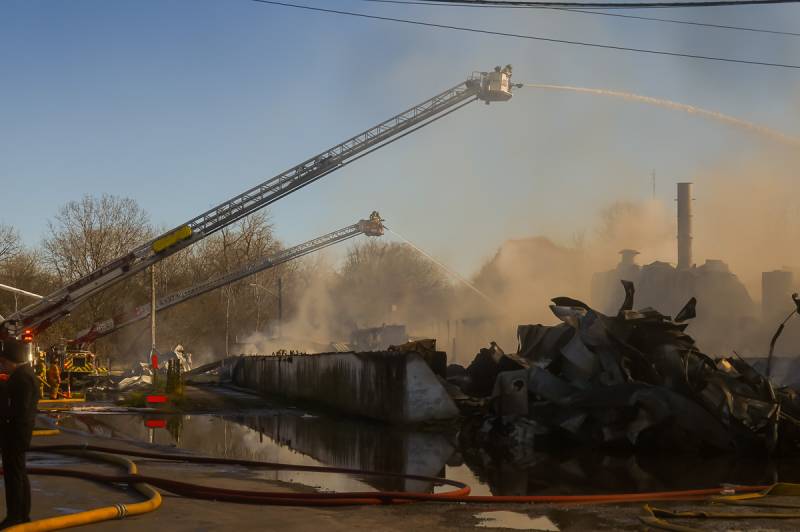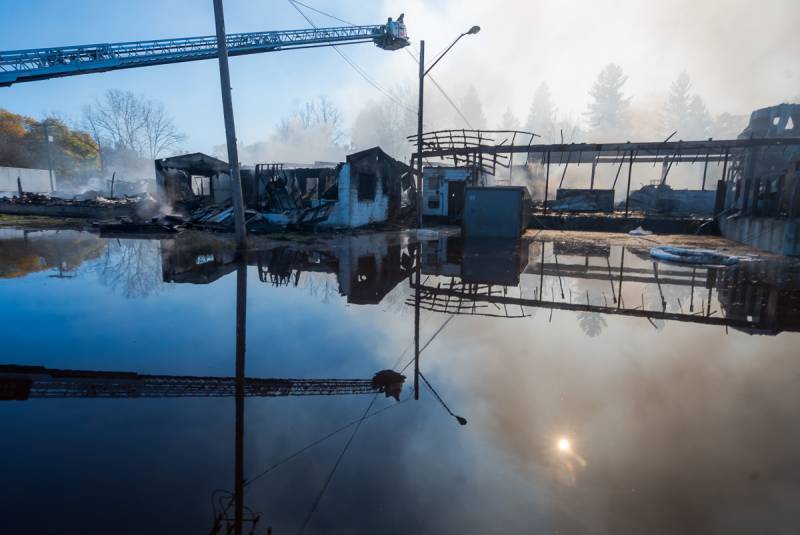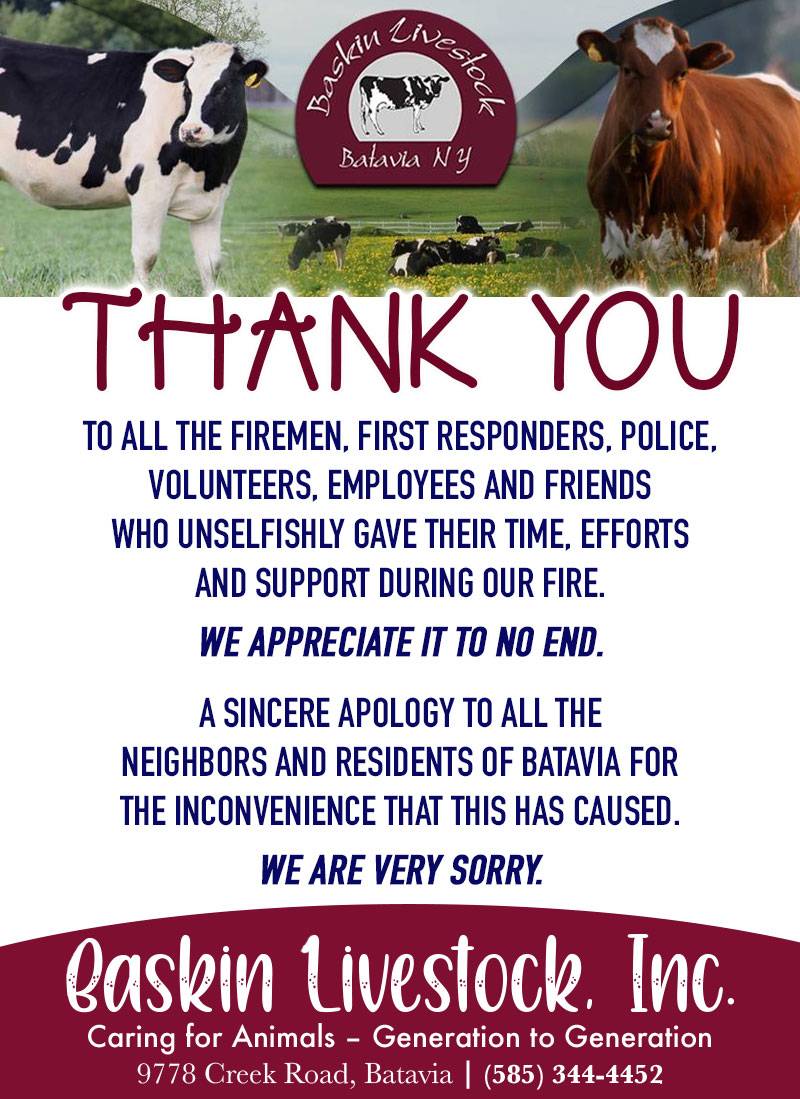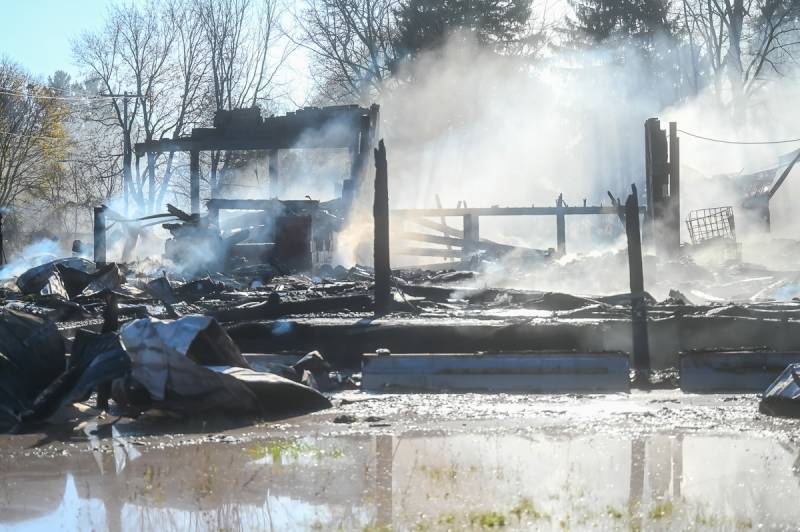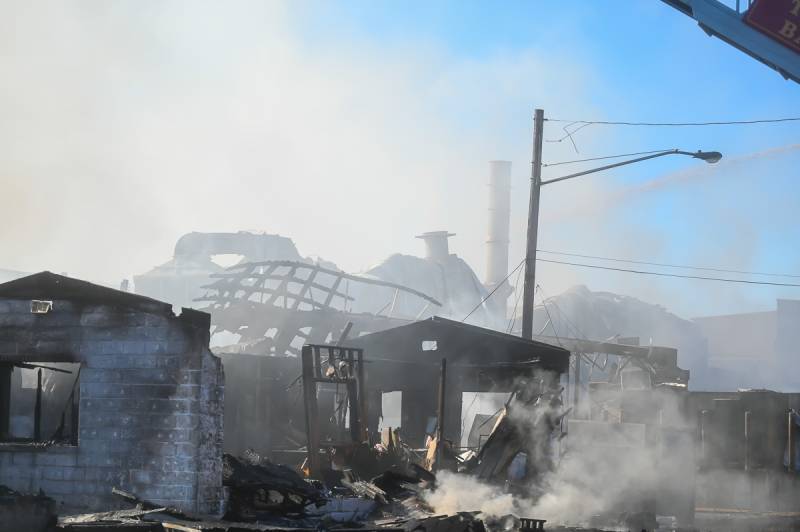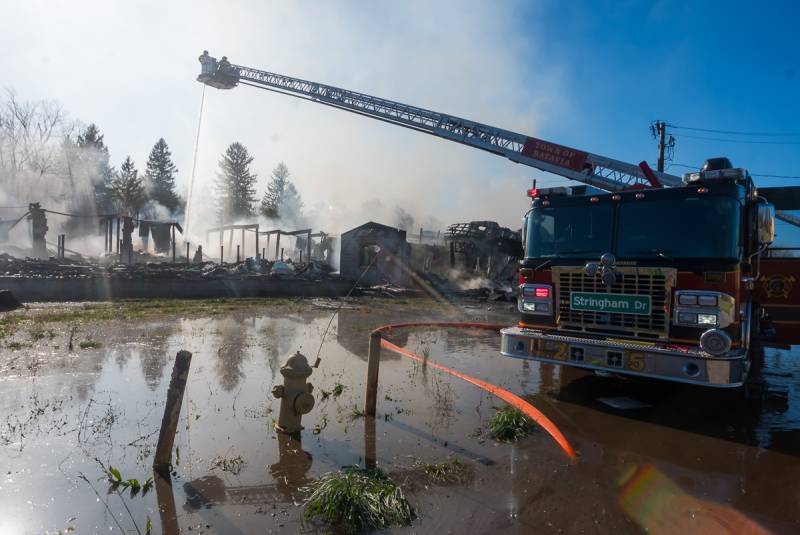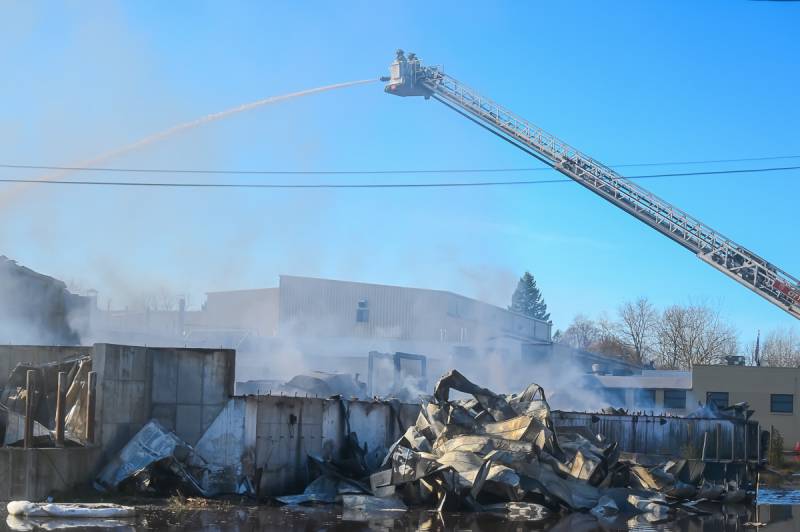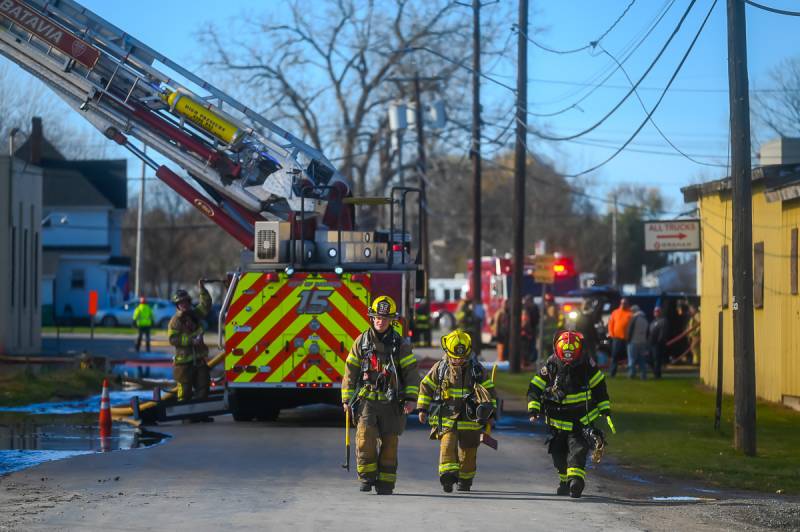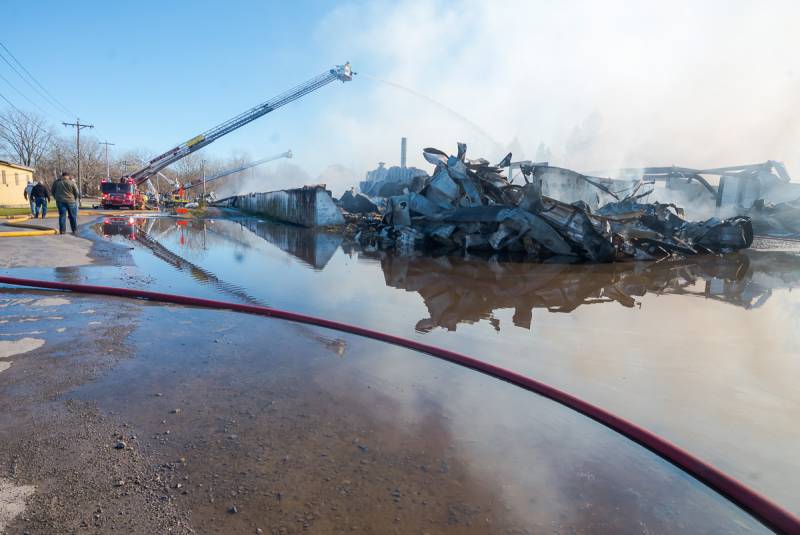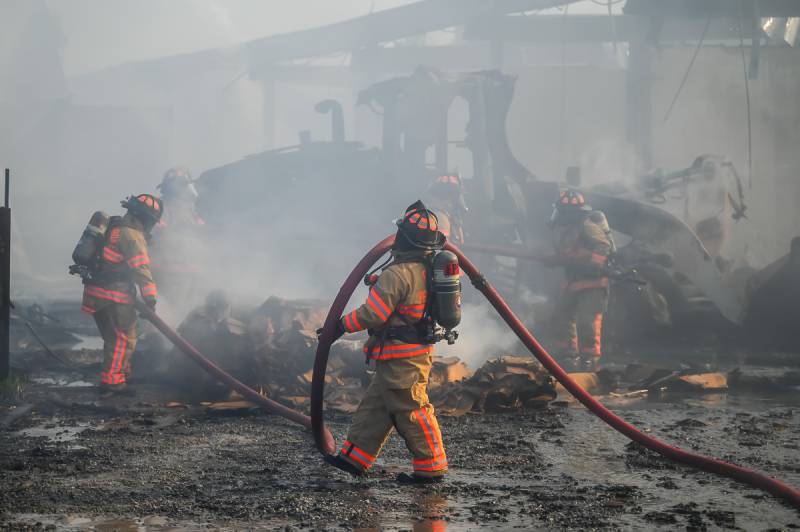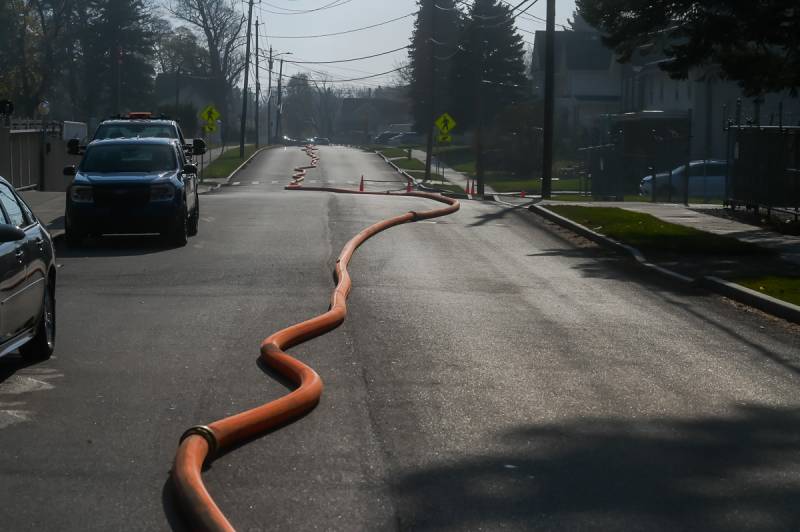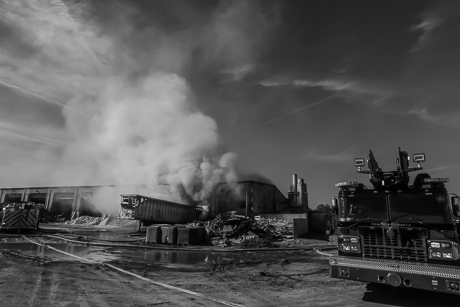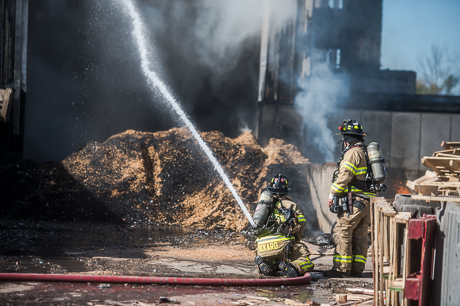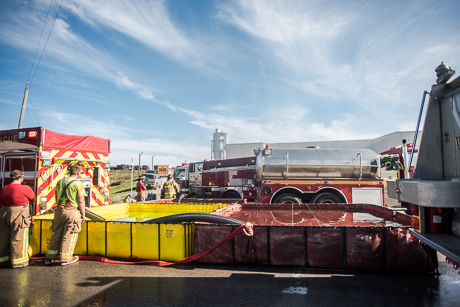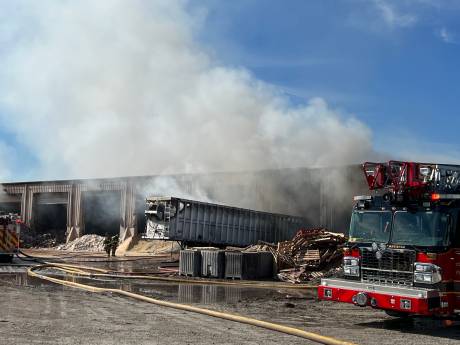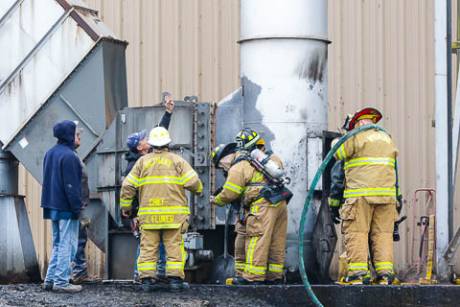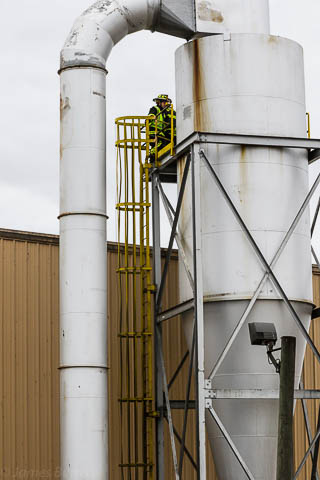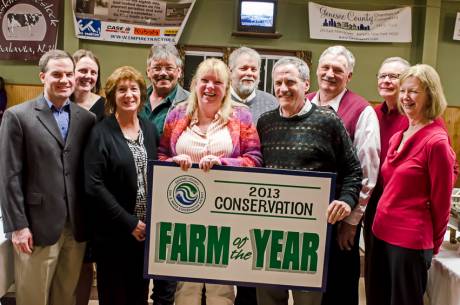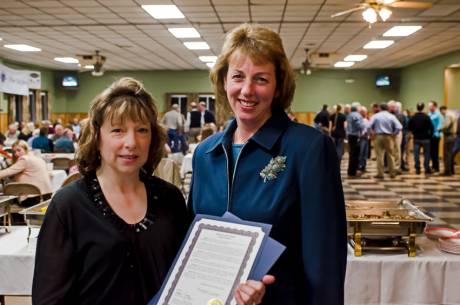This is the fifth story in a six-part series about the 2011 winners of the Genesee County Chamber of Commerce awards.
As much as a good idea and toil played a role in growing Baskin Livestock from a company with four employees into one with 40, the word serendipity can't be left out of any story about Bill Baskin and Susan Blackburn.
The couple met because work brought them together.
The farm Baskin ran in Rhode Island forced him to find creative ways to feed his 700 head of cattle. The feed he used opened up a business opportunity in Western New York. The farm they bought in Batavia -- perfectly suited for their business, but not for dairy operations -- came available at the right time through a bank foreclosure. The location proved critically centered to a host of vendors and customers.
A combination of a business acumen and a bit of serendipity proved to be the right mix and today, Baskin Livestock is one of Genesee County's most successful ag businesses. It is, in fact, the Agriculture Business of the Year, according to the Genesee County Chamber of Commerce.
"It’s a great ag community with a lot of businesses that are more sophisticated and successful than we are," Baskin said. "I’m flattered to be considered in that group. It’s just, it’s humbling … just wow! It's a great feather in our cap."
Baskin grew up in Massachusetts with a father he describes as a "frustrated farmer." He ran a small farm and a owned a tire and fuel business. After college, Baskin moved to the Midwest where he worked as a hog buyer and later exported livestock.
When he returned to the East Coast, he took over 70 acres of rocky farmland -- pasture but no tillable soil to grow feed -- and ran 700 head of cattle.
"All you could see was rocks," Baskin said.
Blackburn was a Pennsylvania farm girl whose life goal was to be a veterinarian and work with cows and horses.
When she was offered a job in Rhode Island as the state vet, she took it.
"The problem was, I was working 110 hours a week and here was an opportunity for a state job that was 45 hours a week and a couple thousand dollars more in salary," Blackburn said.
Once in Pennsylvania, part of Blackburn's job was to travel to the state's farms and administer tuberculosis test on import/export cows.
The test requires injecting the cows on day one and checking the results on day three, and with as many cows as Baskin was bringing in and sending out, Blackburn was visiting the farm three and four days a week.
Working that close together gave them plenty of opportunity to get to know each other.
"We were friends way before we were married, and we stil are, that’s the amazing part," Blackburn said.
To feed his cattle, Blackburn contracted with a man who would drive a small truck to the McDonald's muffin and biscuit factory, collect all their day-olds and mistakes and deliver it to Baskin, who would convert it into feed.
"It was a hard job," Baskin said. "He had a small truck and he went in and loaded it all by hand. One day he got mad and he said, 'I only got one truck and it's hard work and blah, blah, blah. I'm going to quit.' I said, 'Well, Johnny, you might be wealthy enough and old enough to retire, but I'm not.' "
So Baskin got his own truck and driver and found a large bagel factory with waste to recycle into feed.
The manager of that factory was then moved to the company's West Seneca plant, which didn't have a good waste-recycling operation.
So he contacted Baskin, who arranged to start a business in Western New York that would be run by a friend's brother.
Once the contracts were signed and the equipment bought, the would-be employee backed out.
"I told her, somebody has got to go take care of this thing and one thing led to another," Baskin said.
Once the couple bought the farm on Creek Road in Batavia, they were able to build facilities that could accommodate recycling tons of bakery waste into feed, with 40 or 50 truck trips a day of waste coming in and feed going out.
Baskin Livestock collects waste from more than 40 bakeries and ships out to feed companies all within about a 400-mile radius of Batavia.
According to Baskin, the amount of feed the facility produces annually replaces the need for about 16,000 acres of corn.
The process involves taking waste bakery products -- it might be a poorly mixed batch, or returns, or just factory rejects (Lay's Potato Chips rejects any bag that is as much as one chip too heavy or one chip too light).
The waste is dumped into a giant warehouse -- twice the size of a football field -- with a floor 10-feet below ground level. The wet material (uncooked dough, typically) needs to be dried out. The product is then all mixed together, dried further, churned and chopped and then moved to the loading dock for shipment to feed mills, which sell it to farmers.
The timing of pick up and delivery is critical, Baskin said.
"You don't show up when you're supposed to show up and they get backed up, you could potentially shut down a plant with 300 or 400 employees," Baskin said.
To keep his trucks running, Baskin runs his own repair and machine shop, with workers doing basic maintenance on trucks and heavy repairs.
The farm -- originally 874 acres, now more than 1,700 -- also runs 995 head of cattle locally, plus as many as 5,000 more at other locations. The cattle are raised as replacement heifers or meat cattle available locally or for export to places such as Turkey, Russia and Mexico.
Blackburn thinks the business her husband has been able to build is pretty amazing.
Often, Blackburn said, when people find out she's a vet, the common response is, "I've always wanted to be a veterinarian.
"Well, how many times have you heard that," she added. "But I say to them, anybody who can read and has great retention and pays attention can be a veterinarian. But what my husband does, not very many people can do, because he has it all just come out of his head."
A lot of the credit, Baskin said, goes to his employees, who all know their jobs very well.
"The other thing I preach is that I can be here working with you 12, 15 hours a day, side by side, but in 15 years, we're not going to have any business," Baskin said. " I need to be out growing the business and I'm depending on you guys to do the work."
The feed mill is in operation non-stop from 9:30 Monday morning to 9:30 Friday night.
If a business isn't growing, Baskin said, it's shrinking. It's never staying the same, so he's always looking for new opportunities and ways to grow.
Three years ago, they added 20,000 square feet of office space and this summer, they'll add another 5,000 square feet.
Customer service is the name of the game, Baskin said. He lives by and teaches his employees, "The customer is always right."
He prides himself on fixing problems and being able to get along with people others might find difficult.
It's a trait, he said, he picked up while working for his father.
"I fixed all my father's problems," Baskin said. "My old man'd get in a business deal, somebody get pissed off at him. I’d go fix it. I’d go talk to them. I’d go smooth it over. I’d go talk them into ... whatever."
These days, Blackburn doesn't do much vet work -- some here and there -- she's busy helping Bill with his business. She said he's the big-picture guy and she handles a lot of the details.
"Being a veterinarian is a great job, but I like helping my husband out more than I like the ego gratification of going in and telling somebody about heartworm medicine," Blackburn said.
Bill and Susan have a 17-year-old daughter who may some day join the family business, but Bill wants her to experience a little more of life first -- go to college, work for somebody else, see the world from a different perspective.
"I told her, you’ve got to want it," Baskin said. "If you want it, fine, I’ll show you everything. I’m not going to force you to do this."
To be successful in farming, Baskin said, you've got to love it.
He recalled being there for a family gathering during his first marriage and going into the bathroom to wash up for dinner a minute after his brother-in-law had done the same.
"I'm in there and he comes flying in, 'my watch, my watch, my watch,' and I said, 'what's the big deal about your watch?'
"He was a computer engineer for Hewlett Packard, big money in those days. He said, 'In my office, I don't have a clock. If I don't have my watch, I don't know what time it is. If I've got to sit there a minute past four o'clock that just makes me bananas.' He says, 'At four o'clock, I'm going home.'
"So I told my wife at the time, I said, 'You know, you don't like my work. You don't like the smell, you don't like the dirt and you don't like the people and you don't like the cows, but if I had to have a job where I just prayed for four o'clock coming, regardless of what I'm getting paid, it ain't worth it in my opinion.'
"I like the people," Baskin concluded. "I like the dirt. I like the cow business."
Baskin loves it, but he also knows serendipity played a role in what he's achieved in business and at home.
"I was lucky to find her (Susan), lucky to find this place, lucky to find a few opportunities along the way," Baskin said.
"I have no regrets," he added. "I've made a lot of friends, had a lot of fun. If you do what you like and have good people around you, and you're able to go home to a couple of people who love you. Life is good."
